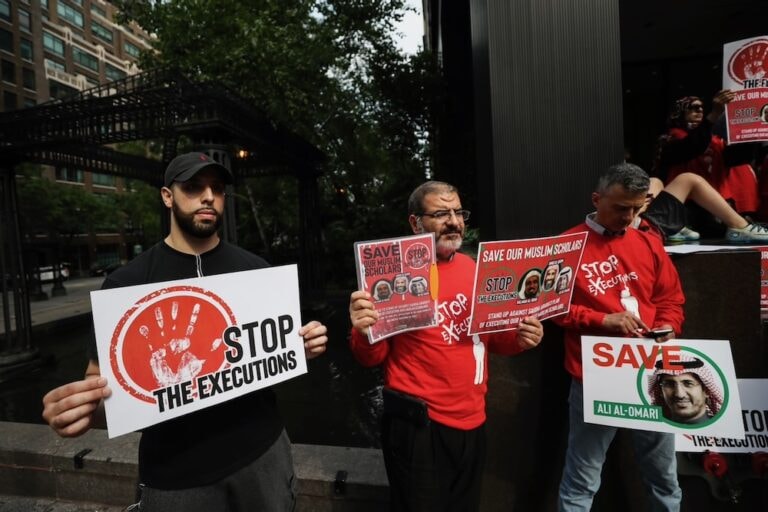The regulation applies to all means of e-publications, including blogs, and imposes strict controls on freedom of expression on the Internet.
(ANHRI/IFEX) – The Arabic Network for Human Rights Information (ANHRI) strongly rejects the Ministry of Culture and Information’s decision on 1 January 2011 to approve the new executive regulation on electronic publishing. The regulation contains 20 articles dealing with electronic publishing, applying the same restrictive manner used in dealing with newspapers and publications in the Saudi system.
The regulation contains items organising all types of electronic publishing including blogs, forums and short messaging. Internet users have succeeded in creating forums to express their views more freely than in paper publications, with less control imposed by the authorities. This regulation will limit freedom of opinion and expression on the Internet. Article 7 stipulates a permit for electronic publication to be granted by the Ministry of Information.
This article also states that the applicant for the permit should be over 20 years of age, thereby depriving a large segment of bloggers and Internet activists, who are under 20, from exercising their right to free expression and freedom to use the Internet . Moreover, the permit is valid for only three years.
As for article 8, applicants should state their mailing address in order that they be accessible to the authorities. Article 17 penalises breachers of this regulation by partial or total blocking of their websites.
The spokesman of the Ministry of Culture and Information alleged that the regulation will not impose any control on blogs and social networks and that it was intended only to protect society from bad practices. However, the regulation imposed by the Saudi authorities applies to all means of e-publications, including blogs, and imposes strict controls on them that are restrictive of freedom of expression on the Internet.
The application of the regulation on electronic publications coincides with the Saudi authorities blocking the Kingdom of Saudi Arabia page on the Arabic language version of the Wikileaks site.
The site posts Arabic translations of documents and telegrams relevant to Arab countries. The regulation evolved a few days after the blocking of the Elaph site after it published a report on documents and insiders of the Gulf countries, Saudi Arabia included.
ANHRI said, “It is not a regulation to regulate the activities of electronic publishing as they claim, but rather a set of measures to seize freedom of publication on the Internet.”
“The authorities will not be able to stop free expression, the snow ball has started to roll and no one can stop it. The siege imposed by the Saudi government will not succeed in killing ideas, opinions or stopping information and news from flowing. This regulation renders the Saudi government top of the list of autocratic governments not only in the Arab world, but worldwide,” added ANHRI.


